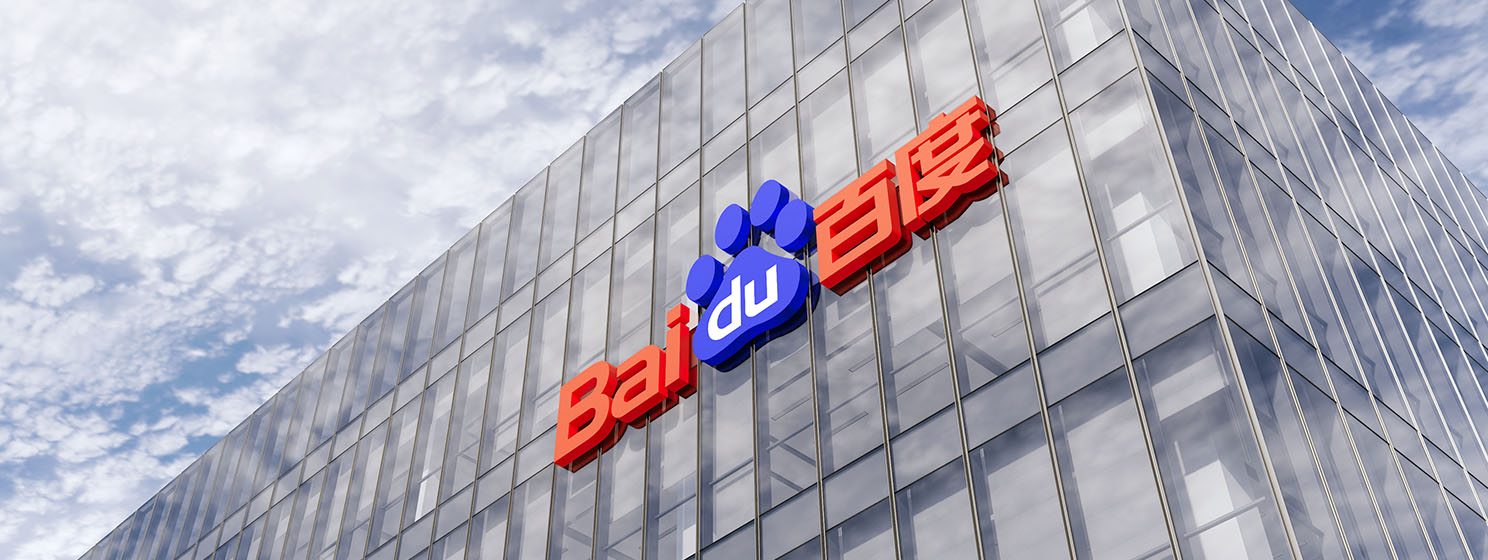|
Getting your Trinity Audio player ready...
|
Chinese Big Tech player Baidu (NASDAQ: BIDU) has announced upgrades to its search engine, adding new artificial intelligence (AI) functionalities into the service, its biggest improvement in over a decade.
According to a CNBC report, Baidu is opting to innovate its search engine to remain viable, as studies highlight a trend of users turning to AI-powered chatbots for answers.
Baidu’s latest changes to its core search product will allow users to enter over a thousand characters in the search box. Previously, users were limited to only 28 characters, reducing search precision and requiring keyword prioritization.
Going forward, users can conversationally ask questions on the search engine, akin to how they interact with chatbots. Furthermore, Baidu is improving its voice search and image prompts.
Lastly, Baidu’s biggest upgrade is the integration of its AI chatbot into the search product. The integration will allow users to use AI to generate text, images, and video on Baidu Search.
Morning Star strategist Kai Wang disclosed that the changes to the Search product are designed to mirror how consumers interact with mainstream AI products. Baidu’s search users have fallen, with several users opting for AI chatbots for their search requirements.
Baidu Search faces stiff competition from China-based AI heavyweights like DeepSeek and Tencent (NASDAQ: TCTZF). Furthermore, short video platforms are turning their gaze to AI Search, slashing off a significant chunk of Baidu’s market share.
Despite the new pressure on Baidu from its rivals, the company took the lead with AI back in 2023 with the release of its Ernie Bot chatbot. In less than six months, Baidu racked up 100 million Chinese users to lead its peers, announcing several AI products to maintain its headstart in the local scene.
However, new entrants are catching up with Baidu with their range of AI products. The stiff competition has sent Baidu stock inching up by only 2.5% since the start of the year, while AI heavyweights Alibaba (NASDAQ: BABA) and Tencent have gained 30.5% and 20% respectively in the same window.
Google racing to innovate Search
Outside of China, Google Search (NASDAQ: GOOGL) is also facing challenges driven by the rapid adoption of AI chatbots. To stay ahead of the curve with emerging technologies, Google has rolled out new AI policies for its Search product, presenting AI summaries for queries ahead of website links.
Furthermore, Google says it integrates its AI mode directly into Search, allowing users to improve their queries and get conversational responses. The U.S.-based search giant has unfurled its independent AI chatbots, providing stiff competition to traditional AI companies like OpenAI and Anthropic.
Beijing schools to integrate AI into learning curriculum
A new report has confirmed that primary and middle schools will adopt AI classes into their existing curriculum to keep up with digitization.
According to an official document released by the Beijing Education Commission, the AI classes will begin in September at the start of a new academic year. Dubbed the Curriculum Outline for Artificial Intelligence Education in Primary and Secondary Schools in Beijing, the report suggests that the new AI classes are a trial before a main rollout.For each academic year, pupils across primary and middle school will have at least eight class hours on AI. Upon full rollout, there are suggestions that the number of hours may increase, matching the hours in secondary schools.
The curriculum will attempt to achieve three key objectives. The Beijing Education Commission will focus on AI awareness and cognitive abilities, AI applications and innovation capabilities, ethics, and social responsibility.
The new curriculum attempts to step up from basic IT knowledge to promote critical thinking skills in pupils. Furthermore, the report notes that AI skills will form part of the comprehensive assessments of Beijing students.
Schools in the capital city of China will be free to teach AI courses independently or merge them with other subjects. The report name-checks information technology, science, and emerging technologies as potential courses for schools to integrate with AI.
“We expect that under the new guidance, an integrated AI educational innovation scenario from primary schools to middle schools could be built, which will better help the education sector seize the opportunities brought by the AI technological reforms,” Li Yuxin, principal of Beijing Bright Horizon Foreign Language Primary School, said.
Pundits have hailed the curriculum for aligning with the goals of general AI education, given its tailor-made design for elementary students. In May, the Chinese Ministry of Education launched new guidelines for AI use in classrooms, prohibiting students from submitting AI-generated text as their original work.
AI to become mainstay in global classrooms
Across several jurisdictions, regulators are bracing for the adoption of AI tools in classrooms. Technology firms are leading the charge via launching innovative products for students and teachers, with Khanmigo and Speechify emerging as frontrunners.
However, Japan’s regulators are limiting the use via key guardrails, including age restrictions and a blanket ban against their use in examinations. The United Nations also urges tighter AI restrictions in schools, citing a raft of ethical considerations, including age restrictions and the emotional well-being of younger students.
In order for artificial intelligence (AI) to work right within the law and thrive in the face of growing challenges, it needs to integrate an enterprise blockchain system that ensures data input quality and ownership—allowing it to keep data safe while also guaranteeing the immutability of data. Check out CoinGeek’s coverage on this emerging tech to learn more why Enterprise blockchain will be the backbone of AI.
Watch: AI is for ‘augmenting’ not replacing the workforce

 02-25-2026
02-25-2026 




